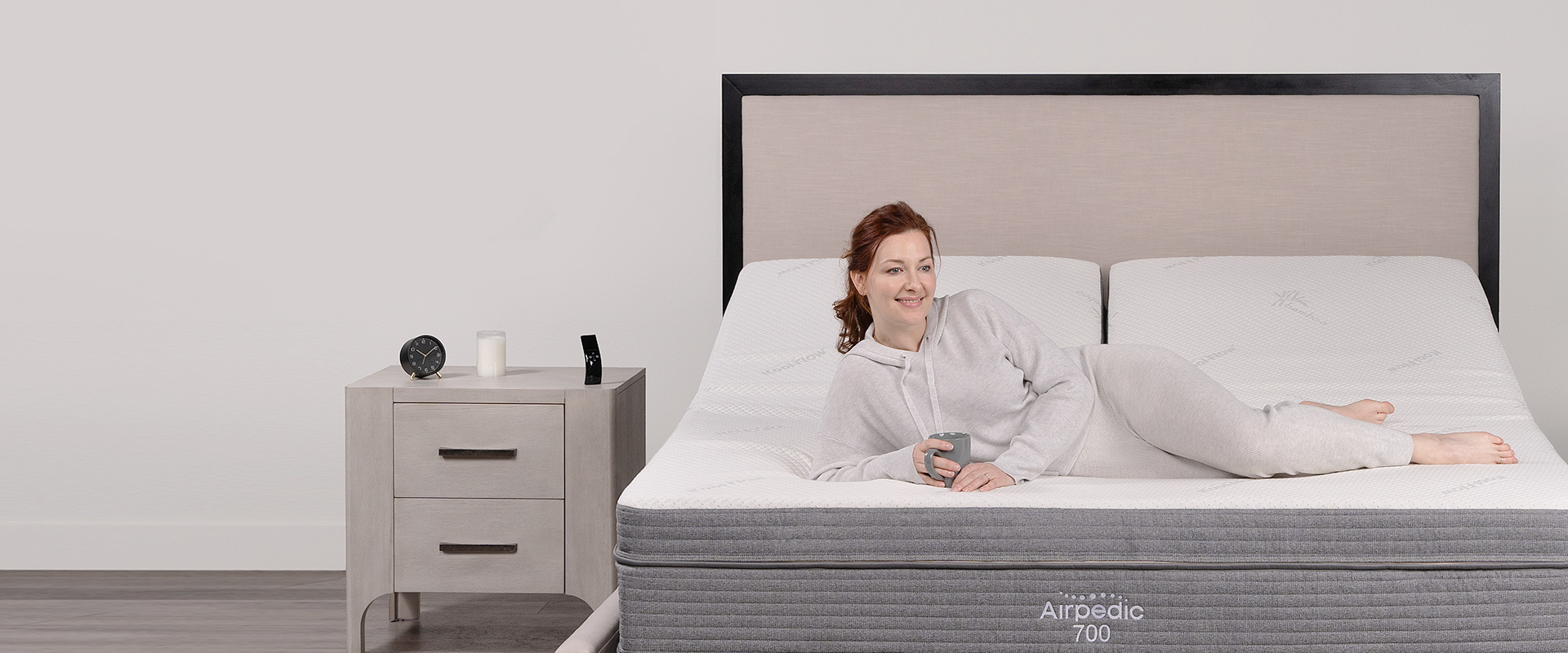
Are Soft Beds Bad For Your Back? The Pros and Cons
Have you ever awakened to a nagging backache and wondered if your plush, cozy mattress might be the culprit? You’re not alone! Many of us have heard whispers that soft beds are bad for our backs. Conversely, you might have heard that a firm mattress is the best mattress for people with back pain. But is there any truth to these claims? Let’s look deeper into the relationship between mattress firmness and back health to separate fact from fiction and help determine the right mattress for you.
Understanding Mattress Firmness: It’s Not One-Size-Fits-All
Before we tackle the soft bed debate, let’s get comfy with the concept of mattress firmness. Mattress firmness can be thought of as a spectrum, ranging from cloud-like softness to brick-wall firmness.
Most mattresses fall into these main categories, each with its own benefits:
- Soft Mattresses (1-3 on the firmness scale):
- Offers pillow-like cushioning
- Ideal for side sleepers
- Provides pressure point relief
- Medium Mattresses (4-6 on the firmness scale):
- Balances support and cushioning
- Suits most sleep positions
- Popular for couples with different preferences
- Firm Mattresses (7-10 on the firmness scale):
- Provides maximum support
- Ideal for stomach sleepers
- Promotes optimal spinal alignment
Learn more about choosing the perfect firmness level in our comprehensive guide.
The Science of Sleep and Back Health: A Delicate Balance
One of the most important considerations when choosing the right mattress firmness is your sleeping position. The spine has a natural curve, and the goal for healthy sleep quality is to maintain that alignment while lying on a mattress.
As such, different sleeping positions require different levels of support due to where body weight is concentrated in each:
- Back sleepers: Generally benefit from medium-firm mattresses that support the lower back rather than letting it sink too deep and overarch the spine.
- Side sleepers: Often require slightly softer mattresses to provide cushion at the pressure points of the shoulders and hips.
- Stomach sleepers: Usually need firmer surfaces to prevent the hips from sinking too deep and arching the back or neck.
Friend or Foe? The Potential Risks of Soft Beds
So, are soft beds really the back pain villains they’re made out to be? Again, there is no one answer or one-firmness-fits-all solution. If a softer mattress allows your body to sink too deep, your spine might curve unnaturally as you sleep, leading to morning neck pain or back pain. However, this doesn’t mean all soft mattresses are bad news for all sleepers.
Although overly soft mattresses can lead to poor spinal alignment, a moderately soft mattress might be perfect for some sleepers, especially side sleepers. Similarly, for people suffering from arthritis, a soft surface might actually relieve pressure on sensitive joints.
While an excessively soft mattress can potentially cause issues due to poor spinal support, the good news is that you do not have to sacrifice support for a cushiony feel. With advanced materials like memory foam and latex, as well as mattress toppers or top layers that differ from the support layers as in the case of hybrid mattresses, there are many quality mattress options that can provide both support and plush comfort.
Is Your Current Mattress Causing Back Pain?
Still not sure if your mattress is helping or hindering your sleep quality? Here are some quick questions to help determine if your mattress is having a negative impact on your spinal health, comfort, and sleep quality:
- Pay attention to when your back pain or neck pain occurs. Does it start in the morning and improve as the day goes on?
- Do you find yourself tossing and turning through the night, unable to find a comfortable position, or waking up feeling tired and sluggish?
- Try sleeping on a different surface for a few nights. Notice any changes in your pain levels or sleep quality?
- All mattresses lose support over time. Check for visible sagging, unevenness or lumps in your mattress.
If you are seeing a connection between your neck or back pain and your mattress based on this assessment – or if you can’t remember how long you’ve had your current mattress – it might be time for an upgrade.
Remember, a good mattress can and should provide both comfort and support to leave you refreshed, well-rested, and pain-free in the morning. For even more factors to consider when purchasing a mattress, check out this comprehensive guide filled with helpful tips to navigate your way to your best sleep.
Your Perfect Match: Choosing the Right Mattress for Your Sleep Style
Choosing the right mattress takes some trial and error to find one that provides the healthy sleep quality we need to thrive. Your sleep style is key to consider as you weigh your firmness options. Are you a back, side, or stomach sleeper? This will guide your mattress firmness choice.
You should also consider your body type and size. Heavier individuals might need firmer support, while lighter folks might be fine with softer surfaces. And be sure to test the mattress out. Many mattress companies offer trial periods. Take advantage of these to really get a feel for the mattress in a real-world sleep setting.
AirPedic Sleep Solutions: Say Hello to Customizable Comfort
Here’s where things get exciting. What if you could have an adjustable mattress that adapts to your specific firmness preferences and sleep needs? That’s where advanced sleep solutions, like those offered by AirPedic®, come into play. These innovative beds allow you to customize the firmness level with the push of a button, ensuring you find your ideal balance of support and comfort for better sleep.
Available in a variety of materials and configurations and with generous trial and warranty periods for maximum peace of mind, AirPedic® mattresses lead the industry in premium sleep solutions for good reason. Explore AirPedicTMmattresses to discover how adjustable firmness technology can revolutionize your sleep experience and give you the better sleep you deserve.
The Bottom Line: Listen to Your Body
So, are soft beds bad for your back? The answer isn’t a simple yes or no. While overly soft mattresses can cause issues for some sleepers, others might find them perfectly comfortable. However, a good mattress definitely needs to promote proper spinal alignment as you sleep. The key is finding the right balance of support and comfort for your unique needs.
Our bodies give us all sorts of clues about how our sleep quality affects our overall well-being. All we have to do is listen to them – and explore the benefits of an adjustable air mattress! Your perfect night’s sleep – and a pain-free morning – might be just an AirPedicTM mattress away!
Experience a new degree of personalized sleep.

Find the Airpedic® that’s just right for your sleep needs.

Buy with monthly payments.
Get an Airpedic Mattress starting as low as $84/mo
or interest-free.
Read More About Healthy Sleep

Chances are that if you’re looking for a new mattress, you’ve encountered the term “orthopedic mattress” during your search. But what does that mean, and is an orthopedic mattress the right choice for you? Airpedic® has been a leader in the industry, producing premium orthopedic mattresses for decades. Orthopedic mattresses…

Choosing the right mattress involves so many considerations – support, firmness, construction, budget, and, of course, size. While selecting mattress size seems straightforward, the decision is more involved than you might think. The wrong size mattress can result in cramped sleeping quarters, insufficient spinal support, and less-than-optimal sleep quality. Whether…
View More
Call one of our sleep experts to place an order.
Business Hours
- Monday - Friday 8:00am - 6:00pm PST
- Saturday - Sunday 10:00am - 6:00pm PST


